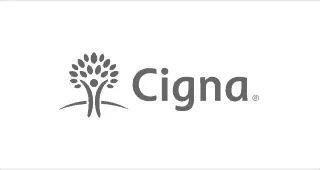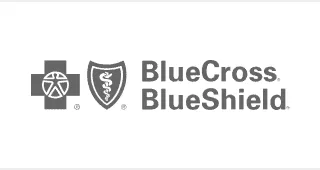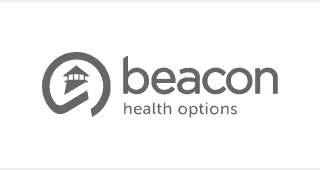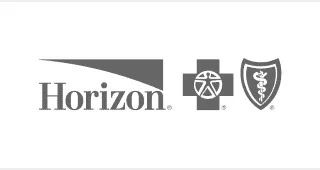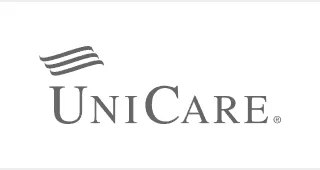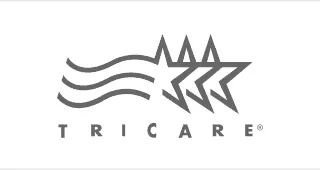People believe detox is the most painful part of kicking a bad habit such as substance or alcohol abuse. The truth is that the pain comes from the withdrawal symptoms that happen during the detoxification process.
This is why it is not uncommon for people to want to know about the detox duration before they commit to it. One of the first queries is usually “how long does it take to detox from heroin?” as one of the most common form issues relevant to substance abuse has to do with heroin.
The latest figures from the National Institute on Drug Abuse indicate that as of 2020, at least 0.3% of all American adults are heroin users. 2020 also saw one of the biggest heroin overdose-related deaths, with a number of 13,165.
What is Withdrawal?
Withdrawal is the body’s reaction to the sudden reduction or complete stoppage of substance or alcohol use. It comes in the form of physical and mental effects that could be anything from simply being immensely uncomfortable to life-threatening.
Just as chronic alcohol or drug use changes the body, the sudden decline and eventual elimination of these substances from the body also creates a massive change. On top of that, these massive changes also tend to be immensely stressful and, in some cases, require medical attention.
How Does a Detox Program Help?
These symptoms, however, could be better managed if the person undergoes a detox program. Some people are more than willing to do whatever it takes to kick the habit but are under the misguided notion that they could do so by themselves. A detox program is designed so that all the necessary precautions are put in place during the detox process.
These precautions become a vital necessity should complications arise in the detox process. In many cases, the sudden loss of substances or alcohol in the body causes a shock to the system, leaving the person in either a coma or causing massive organ failure and death.
What are the Common Withdrawal Symptoms?
For those who happen to have a heroin substance abuse disorder, withdrawal symptoms could typically include:
Lifestyle
The most important point is service setting. This feature of the program tends to be influenced by the following factors:
These symptoms could further be accompanied by the more general withdrawal symptoms experienced by most who go through detox, such as:
There are also a number of factors that affect the duration and severity of the withdrawal symptoms, including:
Outside of these factors, and within the confines of a detox facility, the physical symptoms could run from anywhere from a few days to a few weeks. The psychological symptoms, however, including depression, could last for far longer.
In some instances, the need for medication-assisted treatment is the only way to facilitate a successful detox, as the craving could be so intense that the person is in constant agony without taking whatever it is they have a dependency on.
What are the Three Levels of Heroin Withdrawal Symptoms?
Heroin is a substance that directly affects the central nervous system, often suppressing or causing irregularities in the proper functioning of some autonomic processes, such as blood pressure, breathing, heart rate, and even body temperature regulation.
With such wide-scale effect, it is no wonder that heroin abuse appears to be among those dependencies with the most withdrawal symptoms. In fact, heroin withdrawal symptoms could even be classified into three categories:
Mild symptoms
Moderate symptoms
Severe symptoms
While these three levels do have a classification that is considered to be “severe,” most of these are not life-threatening at all. What makes heroin withdrawal particularly worrisome is that some people tend to have a serious adverse reaction by way of complications. As some of the more severe withdrawal symptoms include issues that involve the cardiovascular system, those with a particular susceptibility to heart disease could potentially be at great risk.
Heroin also affects the mental health of many who have developed a dependency on it. Depression is a common psychological issue that arises as a withdrawal symptom, and there are many cases of heroin withdrawal-induced depression lingering in the person for up to years at a time. Many of those who experienced depression as a symptom while in a detox program admitted to having suicidal thoughts at times.
Critical complications such as suicidal tendencies brought on by depression and impaired breathing stemming from heroin withdrawal are just a couple of reasons why detox should always be done in a clinical setting and not attempted at home.
What Treatments are Prescribed for Heroin Addiction?
The massive behavioral changes and alterations in normal thought patterns caused by heroin abuse require intensive and extensive psychotherapy to treat. This is why heroin addiction rehabilitation includes more psychotherapy than most other rehabilitation programs.
Examples of these psychotherapy approaches include:
Cognitive Behavioral Therapy
Cognitive behavioral therapy (CBT) is an approach in psychotherapy that helps people manage problems by altering the way they think and behave. It is typically used to treat anxiety, depression, and other mental health problems.
This type of therapy works because it helps the person identify negative thoughts that could lead to self-harm, such as resorting to substances to deal with stress or problems.
Dialectical Behavior Therapy
Dialectical behavior therapy (DBT) is an approach in psychotherapy that is derived from cognitive behavioral therapy (CBT). It is particularly developed to help people who have minimal to no control over how their emotions dictate what they do.
In many instances, people engage in adverse or harmful behavior because they are driven to do so by intense emotions. DBT helps people understand and accept these intense emotions so they can manage them.
Dialectical Behavior Therapy
Trauma is one of the most powerful influences on human behavior and thinking. Many people develop conditions and disorders due to unprocessed trauma. Somatic experiencing therapy works on the principle that trauma gets trapped in the body, leading to irrational fears and behavior, and also a warped way of thinking relevant to the trauma.
This approach has been used on people with post-traumatic stress disorder (PTSD), anxiety, and panic attacks. This method works on releasing this stress caused by the trauma from the body.
Motivational Interviewing Program
Motivational interviewing is a conversation-based therapy geared to learning about and strengthening an individual’s motivation for changing behavior. This approach basically emphasizes the “why” of therapy, removing the clutter and complexity of problem-solving and creating a simple direction to goal-achieving by simply pointing a straight path to the goal.
This approach establishes a person’s personal goal as the motivation for change. Different people could have different goals, which is why this approach is said to be highly personalized. Contact us today if you or a loved one is in need of help.
Start Effective Heroin Addiction Treatment with Achieve Wellness
Detoxing from heroin is a significant and commendable step towards reclaiming one’s health and life. While the journey can be challenging and the duration of detox varies for each individual, it’s essential to remember that detox is just the beginning of the recovery process.
At Achieve Wellness, we believe in a holistic approach, supporting individuals not just through the detox phase but also in rebuilding a life free from the grips of addiction. It’s a journey that demands patience, resilience, and a robust support system. If you or someone you know is struggling with heroin addiction, know that help is available, and a brighter, healthier future is attainable. Contact our team today.
We work with most insurance companies. Please note we are not affiliated with or endorsed by insurance companies.
No Medicaid Accepted.

Medically Reviewed By
Nicole Rettino-Lambert LCSW, LCADC, CCS, CCTP, CSTIP
Nicole Rettino-Lambert is a dually licensed clinician with over 20 years of experience working with children, adolescents, and adults in both addiction treatment and mental health treatment. Along with extensive experience in clinical work, she has held leadership roles in both inpatient and outpatient addiction treatments centers in New Jersey. Throughout her various leadership positions, Rettino-Lambert has developed clinical programming, assisted staff in their growth and development in the clinical field, and had the privilege of helping numerous individuals on their path to recovery.
As a clinician, Rettino-Lambert specializes in addiction trauma, mental health, self-harm behaviors, anxiety, intimacy issues, sex addiction, and personality disorders. She holds certifications as a clinical trauma professional and sex informed professional. Her passion and purpose as a clinician are to help individuals find their voice, purpose, and motivation through their recovery. She takes pride in being part of the process that helps those who are fighting for their lives to achieve both sobriety and wellness.In her role as a Clinical Director at Achieve Wellness and Recovery, Rettino-Lambert works tirelessly to ensure that her staff feels supported in their roles, continues their clinical growth and development, and is empowered to become the best versions of themselves. She firmly believes that all the staff are an essential part of clients’ recovery journey and that they deserve continuous compassion, empathy, acknowledgment, and support from leadership.





